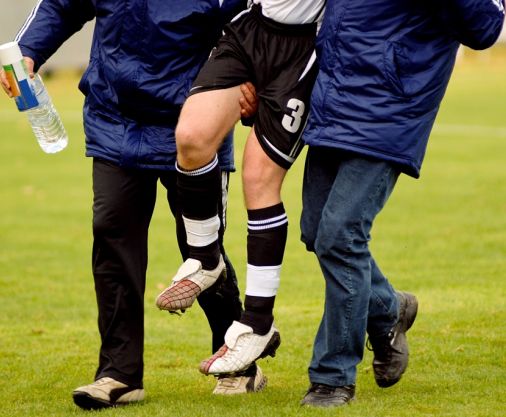Recovering Quickly After a Sports Related Injury

Sometimes an injury can just heal on its own by just resting it, but sometimes it takes months and endless physical therapy to get back in the game. If you have suffered an injury that does not require medical treatment, like a sprain, strain, muscle pull, or tear, getting immediate medical treatment can prevent future complications and help the injury heal faster.
If you think you have suffered a serious injury, make sure to seek out the opinion of a medical professional.
There are many causes of sport injuries. Poor training, inadequate warm-up, lack of conditioning can all contribute to injuries.
Here are a few tips to a quick recovery.
There is a very well know recovery method known as: RICE.
- REST – Rest is extremely important to protect the injured muscle, tendon, ligament or other tissue from further injury. If you are injured, stop the physical activity and protect the injured part from further damage. Try and avoid putting weight on the injured area. Resting the injured area is important to promote healing.
- ICE – When you are icing your injury, the most effective and convenient method is by using a cold therapy machine or cryotherapy machine. This is an extremely effective way to direct cold to the injured tissue. Traditional ice packs only provide a “Static” form of cold therapy, meaning there is no flow or movement. Cold therapy units provide a dynamic, or constant flow of cold therapy, allowing for better heat transfer. The most efficient heat transfer happens between the greatest differences of temperatures and when you have a high rate of cold water flow over the injured area. Dynamic cold therapy, provides a more consistent therapeutic temperature, thus accelerating the healing process and reducing pain, swelling, and the need for pain control medications. Cold therapy provides short-term pain relief and also limits swelling by reducing blood flow to the injured area. A good rule is to apply cold compresses for 15 minutes and then leave them off long enough for the skin to re-warm.
- COMPRESSION – Compression helps reduce swelling, which can delay healing. You can also get pain relief from compression. Wrapping an ACE bandage around to injury is a simple way to obtain the benefits of compression therapy.
- ELEVATION – Elevating your injury helps control swelling. It’s the most effective when the injured area is raised above the level of your heart. For example, if you injure a knee, lay down with your leg propped on one or two pillows.
After 48 hours RICE therapy, stop compression and try to move the injured area. If, your symptoms are not better, seek further medical advice.
But if it works, you can follow these steps:
• Gentle stretching exercises can be done after all the swelling has subsided. Try to slowly work the entire range of motion of the injured joint or muscle, but be careful not to force a stretch, or you risk re-injury to the area. Keep in mind that stretching should never cause pain.





